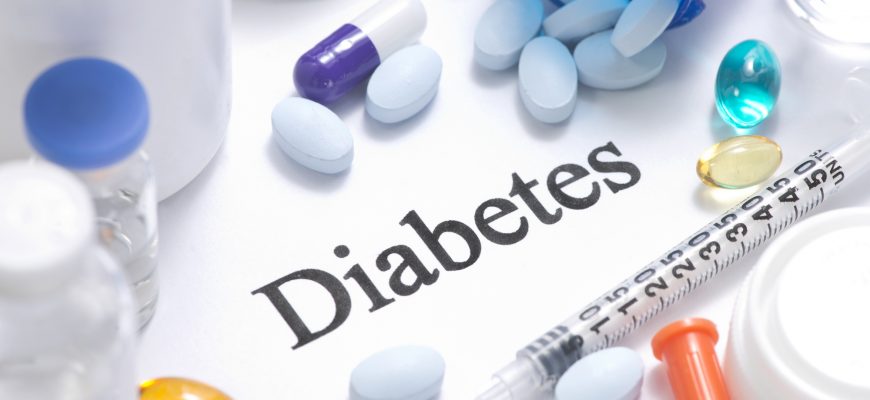
Managing type 2 diabetes can be challenging. Yet, with the right diabetes care plan and effective diabetes control tips, it is easy to stay on track. A type 2 diabetes care plan provides essential guidelines for managing the condition. It aims to improve your health and lifestyle.
The prevalence of type 2 diabetes is increasing. It poses significant health risks such as kidney disease, neuropathy, and even mortality. But it is important to remember that diabetes does not have to be a death sentence. By implementing proper strategies and positive lifestyle changes, you can defend yourself.
This blog is for you if you are someone willing to know how to manage type 2 diabetes. Whether you’ve just been diagnosed or have been managing it for some time, the circumstance remains the same. The tips here aim to help manage type 2 diabetes and promote a healthier lifestyle.
Below, we will discuss 7 effective strategies to manage type 2 diabetes. By implementing these strategies, you can take charge of your diabetes management journey. Key considerations for effective type-2 Diabetes management are:
1. Stress
We live in a stressful world, but stress can further harm your condition. According to the National Library of Medicine, hormones can impact blood sugar levels. That is why stress and diabetes type 2 are closely linked. When stress hits, your body responds by releasing hormones like cortisol and adrenaline. This triggers a chain reaction by elevating blood sugar levels.
Research also states that oxidative stress and diabetes type 2 are partners in crime. Simply put, oxidative stress can damage cells and worsen insulin resistance. This creates a hostile environment for diabetes management. Consequently, it becomes challenging to overlook the significant impact of stress on type 2 diabetes.
Take heart, as effectively managing stress can be your secret weapon in the battle against diabetes. Taking charge of stress levels can directly impact your blood sugar. While you cannot always avoid stress completely, manage to take time for yourself. You can practice mindfulness. Consider yoga or cardiovascular exercise to get some endorphins running through your body.
2. Nutrient-rich and sustainable diet
Your diabetes type 2 diet isn’t just about counting carbs. Diet really affects type 2 diabetes. Thus, focus on a healthy diet to manage your blood sugar levels. Also, track your carbohydrate intake and choose from various nutritious foods. For example, the best diet for diabetes type 2 includes nutrient-rich eating. After all, foods that fuel your body can make a real difference in diabetes management.
A nutrient-rich diet prioritizes foods bursting with vitamins, minerals, and fiber. So, opt for colorful vegetables, lean proteins, and whole grains. These power-packed choices aid in stabilizing blood sugar levels. This way, it keeps you on top of your game.
Lastly, sustainability in your diabetes type 2 meal planning is also a game-changer. It’s not a quick fix but a lifestyle. Choose foods that are kind to the planet and your health. Think of locally sourced, seasonal produce and lean proteins. This supports your well-being and contributes to a greener, more sustainable world. Your diabetes type 2 diet plan is all about balance and practicality. It’s not a one-size-fits-all deal; it’s tailored to suit your preferences and lifestyle.
3. Sugary drinks
It is easy to keep sugar and calories down in meals. Yet, many of us forget the calories and sugar in beverages. If you want to manage type 2 diabetes, it is imperative to keep an eye on the sugar content of your beverages. While occasional indulgences are fine, monitoring your blood sugar is key to reducing the risk. The risks involve heart disease, nerve damage, and kidney damage.
Sugary drinks and diabetes have a long connection. Eating a healthy diet can be undone by one too many sugary drinks. Keep yourself in check and opt for healthier alternatives. For example, fizzy drinks contain 39 grams of sugar. It is more than the 25 daily grams suggested for type 2 diabetics. These little things will help you in managing type 2 diabetes.
4. Medication
Type 2 diabetes medication can also help manage blood sugar. You might have heard about taking insulin therapy. Insulin injections are common but require a prescription. You should be mindful that over-the-counter type 2 diabetes medication is limited.
Now, one of the most common type 2 diabetes medications is metformin. It is both effective and affordable. That is why it is the cheapest type 2 diabetes medication (on prescription point).
The safest type 2 diabetes medication depends on individual health needs. Generally, oral diabetes medications, like sulfonylureas and DPP-4 inhibitors, are safe. Then, medications like Jardiance work together with your diet to help treat your condition. However, consultation with a healthcare professional is crucial to determine the best fit.
Always follow the prescribed dosage and check blood sugar levels. If experiencing side effects, consult a healthcare provider promptly.
5. Exercise
The causes of type 2 diabetes are diverse and not completely understood. Yet, we do know that having too much weight and not being active increases the risk. You cannot ignore the essential role of exercise in managing diabetes. That is why exercise for diabetes type 2 management becomes crucial.
You do not have to become an ironman to get enough exercise to improve your condition. Rather, simple aerobic exercises for type 2 diabetes will work. You can also take brisk walks or jog daily.
Ask your doctor how you can go about formulating an exercise routine. They will also tell you about safe blood sugar levels for exerting that much energy. Also, always keep a snack if you need a blood sugar boost. Usually, the best workout for type 2 diabetes includes light strength training at home.
As per research, exercising will help you relieve stress. It improves your heart and lungs and drops some of your excess weight. This way, it is among the top strategies to manage Diabetes. You might even be able to reverse type 2 diabetes with this method.
6. Hydration
Did you know that your hydration can impact your blood sugar levels? Well, hydration and diabetes type 2 are interlinked. People with diabetes are more likely to suffer from dehydration. This is because dehydration can affect their glucose levels.
As per studies, when it comes to managing Type 2 diabetes, it is necessary to drink sugar-free drinks. Along with that, drinking water and diabetes type 2 management go hand in hand. Drink water throughout the day to keep your hydration levels normal. This is especially true when you are exercising. It applies even when exerting extra energy, like playing with pets.
7. Alcohol
Understanding the relationship between alcohol and type 2 diabetes is essential. Diabetics do not have to avoid alcohol completely. But if you choose to abstain, that is a valid and healthy choice. Moderation is the key when it comes to type 2 diabetes and alcohol intake.
Some people still like to have a casual drink or two among friends. In such cases, before drinking, there are a few things that you should do.
First, ask your doctor if it is going to be okay for you to drink alcohol. You do not have to ask every time (that would be a hassle), but you should ask for advice on managing your drinking. You will have to choose specific times and blood sugar levels that are “safe zones” for drinking.
You want to choose drinks that will not raise your blood sugar level too much. You can use diet sodas or drink your alcohol on the rocks. Light beers may also be appropriate but check the label first.
Always have some food beforehand to manage your blood sugar. Lastly, check your blood sugar levels before sleeping. Alcohol is riskier when you are a diabetic, and you want to make sure that nothing goes wrong overnight.
Type 2 Diabetes Care Plan
A type 2 diabetes care plan is significant for managing type 2 diabetes. It provides a structured approach to controlling blood sugar and reducing complication risks. A care plan serves as a roadmap for individuals with type 2 diabetes. It outlines the necessary steps and strategies to follow daily. Here are some key reasons why a care plan is significant:
- Blood sugar management
A care plan helps you manage your blood sugar levels. It comprises healthy eating, physical activity, and medication.
- Complication prevention
Type 2 diabetes increases the risk of various complications. It could be heart disease, kidney problems, nerve damage, or vision issues.
- Individualized approach
Each person’s experience with type 2 diabetes is unique. A care plan focuses on individual needs and preferences.
- Long-term health outcomes
You can achieve better long-term health outcomes by following a care plan.
- Empowerment and self-management
A care plan empowers you to take part in your health and diabetes management.
Type 2 Diabetes Is Manageable!
Being diagnosed with type 2 diabetes might have been a stressful moment in your life. Yet, you can manage (and even reverse) your condition by engaging in healthier habits. Along with it, try to follow a type 2 diabetes care plan. These habits will not only help with your diabetes but also with your quality of life. Exercise, good nutrition, and stress management are best for managing Type 2 diabetes. You can then enjoy a healthy lifestyle. To learn more about it or to buy medications at reasonable prices, visit our site.
References
- 2022. Stress-Induced Diabetes: A Review. National Library of Medicine. https://www.ncbi.nlm.nih.gov/pmc/articles/PMC9561544/
- 2017. Effect of diet on type 2 diabetes mellitus: A review. National Library of Medicine. https://www.ncbi.nlm.nih.gov/pmc/articles/PMC5426415/
- 2021. Sugar intake from sweetened beverages and diabetes: A narrative review. National Library of Medicine. https://www.ncbi.nlm.nih.gov/pmc/articles/PMC8472506/
- 2016. Update on the treatment of type 2 diabetes mellitus. National Library of Medicine. https://www.ncbi.nlm.nih.gov/pmc/articles/PMC5027002/
- 2016. Physical Activity/Exercise and Diabetes: A Position Statement of the American Diabetes Association. American Diabetes Association. https://diabetesjournals.org/care/article/39/11/2065/37249/Physical-Activity-Exercise-and-Diabetes-A-Position
- 2021. Water intake and risk of type 2 diabetes. Science Direct. https://www.sciencedirect.com/science/article/abs/pii/S1871402121001673#:~:text=The%20relationship%20between%20water%20intake,risk%20in%20type%202%20diabetes.
- 2009. Alcohol as a Risk Factor for Type 2 Diabetes. National Library of Medicine. https://www.ncbi.nlm.nih.gov/pmc/articles/PMC2768203/
- 2018. Type 2 Diabetes Management in Primary Care. National Library of Medicine. https://www.ncbi.nlm.nih.gov/pmc/articles/PMC6092883/
Also Read
DISCOVERING IMPACTFUL WAYS FOR TYPE 2 DIABETES MANAGEMENT
10 FOODS THAT REDUCE ANXIETY AND THE ONES THAT WORSEN IT
UNCOVERING TOP 6 EXPERT TIPS FOR A HEALTHY HEART
DISCOVERING 5 EFFECTIVE WAYS FOR PREVENTION OF ASTHMA
10 DANGEROUS EFFECTS OF STRESS ON YOUR HEALTH AND HAPPINESS




